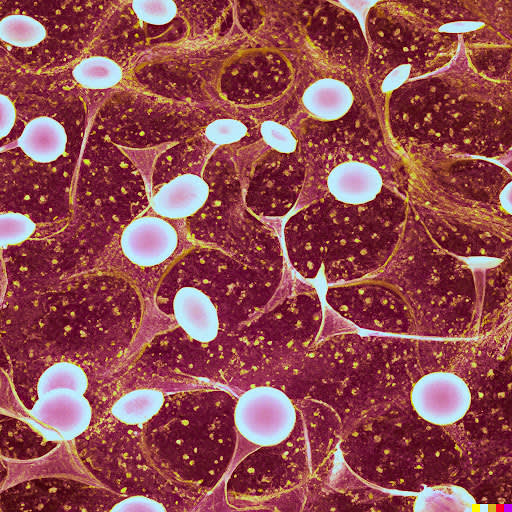What do 1 million microbiomes reveal about human health? In 2024, Viome scientists made extraordinary discoveries in precision health, transforming how we understand and support human wellness through personalized nutrition.
The power of one million microbiomes
This fall, we reached a milestone achievement: analyzing our millionth microbiome. The true power of this milestone lies in the concrete results it delivers: one million stories delivering a snapshot of human health. This breakthrough has deepened our understanding of how our microscopic friends that live inside us influence aging and changes in molecular health while advancing new research and applied understanding for personalized nutrition and precision health. Each microbiome studied informs the collective insights.
Our ViOS platform never stops learning
Like science itself, our knowledge keeps evolving. Vie, our AI engine, continuously learns and enhances its understanding of human health through each new Viome test. Every sample enriches our understanding of the relationships between microbiomes, genes, and health outcomes. Through ongoing research, millions of data points, and groundbreaking discoveries, our platform delivers increasingly precise, personalized recommendations as we uncover new patterns in human health. These insights enable us to develop innovative products and expand our testing capabilities.
Poor Viome scores are connected to health risks
Proactive health starts with insight. Two pivotal studies demonstrated the connection between Viome scores and health issues.1,2 This research confirmed that suboptimal Viome scores correlate significantly with increased health risks, providing awareness of early warning signs before problems develop. Our ability to identify these correlations enables preventive action at the earliest possible stage.*
Six months on the Viome Program improves all scores
The proof is in the progress. In a study of nearly 4,000 Viome customers, users achieved improved scores by 25% on average across all key areas of health, including gut health, brain, cellular, heart, metabolic, and inflammation response by following their Viome nutritional recommendations, including the custom-formulated supplements, for an average of 6 months.3 This comprehensive improvement across multiple health markers demonstrates how personalized nutrition can positively impact overall wellness. Improved scores are associated with lower risks of health issues.
Randomized placebo-controlled trial demonstrates metabolic health
Ninety days can reset the conversation about metabolic health. Based on an interim analysis, participants enrolled in our randomized controlled trial studying metabolic health markers achieved improvements eight times higher than comparable industry trials.4 This dramatic difference demonstrates the real-world impact of a precision approach to health optimization. Users experienced a noticeable improvement in hba1c (a measure of metabolic health) in less than 90 days of following their Viome plan and taking custom-formulated supplements.* These findings suggest that personalized interventions based on individual microbiome patterns may accelerate the path to metabolic wellness.*
Advancing our understanding of aging
The secret to biological aging may be more dynamic than we thought. Our biological aging study analyzed stool and blood samples from over 90,000 people, revealing crucial insights into biological aging and how our microbiome and nutrition control it.5 One of the striking results in this paper is that people on paleo diets are, as a group, chronologically younger but biologically older (higher model-predicted ages). On the other hand, people on vegetarian diets are, as a group, chronologically older but biologically younger (lower model-predicted ages. Several microbiome and human gene expression pathways play a significant role in the determination of biological aging. This insight not only advances our understanding of the aging process but also provides practical considerations to influence it through precision nutrition.*
The connection between microbiome and mental health
The gut-brain connection is more than just a feeling. In our mood study, 69.8% of participants following Viome's nutrition showed a reduction in symptoms, compared to just 15.6% in the control group – a concrete demonstration of the impact of personalized nutrition protocols on systemic health issues.*6 Additional research showed unique connections between imbalances in the microbiome and autism in kids, identifying specific microbial signatures that may influence neurotransmitter levels through enzymatic activity.7 A personalized nutrition protocol combined with precision supplements is ideal for health interventions.*
What this means for Viome users
The best science empowers transformative solutions. These breakthroughs aren't just expanding scientific knowledge - they're actively helping Viome users achieve their health, vitality, and longevity goals through actionable health insights and personalized nutrition recommendations.
Following Viome's guidance for at least 6 months can lead to measurable health improvements*
Regular monitoring of Viome scores may help identify and address potential health risks early*
Our precision nutrition and supplement protocols offer effective solutions to improve core biomarkers of health*
Join our mission
Every test tells a story, and every story matters. User participation in the Viome community has been instrumental in these breakthrough discoveries. Every test, every data point, and every success story contributes to our understanding and ability to help others achieve optimal health. Together, we’ve made incredible strides in 2024—and there’s so much more to come.
Want to be part of the breakthroughs shaping tomorrow’s healthcare? Here’s how you can help:
Read our Research Blog
Explore our Published research
Participate in Ongoing clinical studies
Share your Viome journey with others via mystory@viome.com
References
Patridge, E., Gorakshakar, A., Molusky, M. M., Ogundijo, O., Janevski, A., Julian, C., Hu, L., Vuyisich, M., & Banavar, G. (2024), 23, 834–842.
Patridge, E., Gorakshakar, A., Molusky, M. M., Ogundijo, O., Juliana, C., Hu, L., Antoine, G., Vuyisich, M., Wohlman, R., & Banavar, G. (2024). bioRxiv.
N. Shen, L. Hu, G. Banavar, Viome unpublished data, 2024
Vuyisich, M., Antoine, G., Mehrtash, M., Keiser, H., Connell, J., Ogundijo, O., Shen, N., Julian, C., Garimella, M., Banavar, G., & Tanton, D. (2024).Preprints.
Gopu, V., Camacho, F. R., Toma, R., Torres, P. J., Cai, Y., Krishnan, S., Rajagopal, S., Tily, H., Vuyisich, M., & Banavar, G. (2023). iScience, 27(1), 108538.
Julian, C., Shen, N., Molusky, M., Hu, L., Gopu, V., Gorakshakar, A., Patridge, E., Antoine, G., Connell, J., Keiser, H., Naidoo, U., Vuyisich, M., & Banavar, G. (2023).
Cannon, M., Toma, R., Ganeshan, S., de Jesus Alvarez Varela, E., Vuyisich, M., & Banavar, G. (2024). NeuroSci, 5(3), 276-290.



